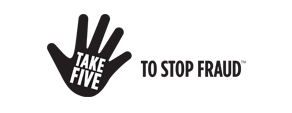Ruthless Scams to Look Out for In 2024
As technology advances at a lightning pace, so do the tactics used by scammers to defraud unsuspecting victims. In 2024, it’s crucial to remain vigilant and informed about the most common scams doing the rounds. Are scams on the rise? Unfortunately, yes – criminals are constantly evolving their methods to exploit new vulnerabilities. Knowing which scams to look out for can help you avoid becoming a victim of their new tactics.
Which scams to look out for:

Here is a rundown of which scams to look out for throughout 2024.
1. Phishing scams
What does phishing mean? Phishing remains a top threat in 2024, with scammers tricking individuals into providing personal and financial information.
- Email phishing: Fake emails posing as legitimate companies are sent to trick you into giving out your personal information via clicking malicious links.
- Smishing: Scammers use SMS messages to phish, encouraging you to click on harmful links.
- Vishing: Fraudsters use voice calls or voicemail to impersonate trusted organisations like banks or service providers.
Prevention tip: Verify email addresses, don’t click suspicious links, and use tools like Phonely’s CallGuard to block phishing attempts over the phone.
2. Social engineering scams
Social engineering relies on manipulating people to reveal confidential information.
- Pretexting: Creating a fake scenario to establish trust & gain your personal details.
- Baiting: Luring victims with an enticing offer to steal your sensitive information.
- Quid pro quo: Criminals request personal & sensitive information in exchange for a service or benefit.
3. Caller ID spoofing
Caller ID spoofing is where scammers manipulate caller IDs to appear as trusted contacts, such as banks or government agencies. Once trust is gained, they ask for personal details or payments.
Prevention tip: Use a service that makes scammers think twice before continuing with a call. An anti-fraud introduction with call recording is perfect for this.
4. Investment scams
Investment fraud continues to devastate unsuspecting victims and plays on people’s desires to increase their fortunes.
- Ponzi schemes: Funds from new investors are used to pay fake “returns” to earlier investors.
- Pyramid schemes: You are required to recruit others to make money with no real product to sell.
- Pump & dump: Fraudsters inflate stock prices through misinformation to sell overvalued shares.

5. Online shopping scams
With more people shopping online, scams like fake stores and non-delivery of items are rampant.
- Fake online stores: Scammers set up websites mimicking legitimate retailers. Victims pay but never receive the product.
- Overpayment scams: Fraudsters claim you overpaid and ask for a refund, usually of the difference.
6. Tech support scams
Fake tech support calls aim to access your computer remotely or charge you for unnecessary services. If you didn’t initiate contact, be wary.
- Cold callers: Scammers falsely claim to provide tech support to charge you hefty fees. If you didn’t know you had an issue, how can they?
- Fake pop-ups: These scare you into believing your computer has a virus. The fraudster pops up to inform you of your infestation and offer their services. Again, you would know if you had a virus or any issue.
7. Lottery or prize scams
If you’re told you’ve won a lottery you never entered, it’s likely a scam. Scammers ask for upfront fees to release winnings. These include fake sweepstakes where again, winnings require upfront payments to receive them.
8. Romance scams
Fraudsters exploit online relationships for financial gain. After developing trust, they ask for money or personal information.

9. Impersonation scams
Scammers pose as authorities or even family members in distress to manipulate victims into transferring money or revealing details.
- Grandparents scams: These often involve a fake emergency where “family” members urgently need funds.
10. Charity scams
Fraudsters take advantage of disasters by posing as charitable organisations and soliciting fake donations.
11. Work-from-home scams
Be cautious of jobs requiring upfront fees, like mystery shopping roles or envelope stuffing. Many of these are thinly disguised pyramid schemes.
12. Rental or real estate scams
Scammers list fake rental properties, asking for deposits on homes that don’t exist. Always verify rental listings through reputable sources.
- Foreclosure rescue: Criminals target struggling homeowners and offer them solutions to prevent foreclosure. These can be a low-interest mortgage loan to gain bank and sensitive details.
- Refinancing scams: Scammers may claim to be mortgage brokers and even present paperwork that includes a deed transfer document.
- Partial interest bankruptcy scams: Fraudsters request a stake in your home and make mortgage payments.

13. Advance-fee scams
Scammers promise large sums if you pay small upfront fees. The notorious Nigerian Prince scam is a classic example.
- Charging fees scam: When applying for a loan you are asked for an upfront fee to release the money. The loan amount is never transferred to you.
14. Identity theft
Fraudsters can use your personal information to take over accounts or open new ones. This can severely damage your credit score.
15. Insurance fraud
False claims and staged accidents cost insurers and policyholders billions annually. Always verify the legitimacy of claims before paying.
16. Travel scams
Criminals lure holiday go-ers with too-good-to-be-true vacation packages that don’t exist or timeshare sales with hidden costs or obligations.
17. Credit card scams
Fraudsters use skimming devices or online hacking to steal card details, racking up phantom charges that are difficult to spot.

This is a comprehensive list, but still, scams are continuously evolving. That’s why it’s so important to keep informed about the latest tactics used by scammers. If an offer seems suspicious or too good to be true, it likely is a scam. Read our blog on how to spot a scam for more details on the intricacies of scammer behaviour.
The latest scams: Online shopping
We briefly covered online shopping scams in our list of scams to look out for, but here are some specific ones you need to be aware of right now:
- Temu scams: Scammers pose as sellers on Temu, offering unrealistically low prices but failing to deliver goods.
- Booking.com scams: Be cautious of fake booking confirmations or phishing emails that redirect you to fraudulent websites.
- Facebook market scams: With so many users, scammers have turned to Facebook Marketplace, offering fake listings to trick buyers. If you’re a seller, never hand over your product until you’ve received the money.
- Vinted scams: Scammers may try to move transactions off-platform or refuse to pay sellers after receiving items.
How much are scams costing the UK public?
Fraudulent activities, including phishing and caller ID spoofing, cost UK consumers billions. In 2023 alone, UK Finance reported losses exceeding £1.2 billion. These financial losses are often accompanied by emotional distress and a decline in health and wellbeing, particularly among vulnerable groups like the elderly.

Who do scams target?
While scams can target anyone, certain demographics may be more vulnerable. Seniors, for instance, are often targeted due to perceived wealth and trusting nature. However, scammers don’t discriminate – they’ll go after anyone they think they can exploit.
Free phone number checker: Stay one step ahead
Phonely offers a free phone number checker UK tool to help you verify unknown numbers. It’s an effective way to ensure that scam numbers can’t reach you. Our regularly updated scammer phone number list UK and automatic call blocking system ensures Phonely customers are protected from up-to-date threats, within an hour of being reported.
How to report a scammer in the UK
Even if you know what scams to look out for, no one is immune to scammer tactics. If you suspect you’ve been the victim of a scam, it’s crucial to report it immediately. You’ll not only protect yourself but also help authorities convict the perpetrators thus protecting others.
There seems to be some stigma and self-blame when it comes to being victimised by fraudsters, but it’s nothing to be ashamed of. Scammers are professionals at what they do. Being scammed is no different than being stolen from in the street – you don’t see it coming and it is the criminal who is to blame. #NoBlameNoShame. You can learn how to report a scam and more about why it’s so important in our dedicated blog post. You can instantly report a scam by visiting Action Fraud.

Scam FAQs
Here are some commonly asked questions concerning what scams to look out for.
Who is calling me from this number?
Wondering, who called you? Phonely’s number lookup tool helps you quickly identify potential scam numbers, giving you the power to block them before any harm is done.
What does defrauding mean?
Defrauding is deceiving someone to gain money or personal benefits. It covers scams like phishing, caller ID spoofing, and more.
What does catfishing mean?
Catfishing is when someone creates a fake identity online to deceive others, often for romantic or financial gain.
What does smashing mean?
Smishing is a type of phishing scam that uses text messages to trick people into clicking malicious links or sharing personal information.
What Age Group Gets Scammed the Most?
Elderly individuals are the most targeted by scammers due to their trust and unfamiliarity with newer technologies.
Why is scamming on the rise?
Scamming is increasing due to the rapid growth of digital communication and digital voice, making it easier for fraudsters to target victims online and by phone.
What does phone spoofing mean?
Phone spoofing is when scammers manipulate caller IDs to make it appear like a trusted number is calling.
Where can I find a free scammer phone number lookup?
Phonely offers a free scammer phone number lookup tool to help you identify and block suspicious numbers.

How to avoid getting scammed: Protecting yourself with CallGuard
At Phonely, we understand the devastating impact scams can have, especially on vulnerable individuals. That’s why we’ve developed CallGuard, a unique and robust telephone scam protection system. With features like call blocking, call recording, and alerts to trusted contacts, CallGuard acts as a powerful barrier against scammers, giving you the confidence to answer your phone without fear. You can learn more about how CallGuard works to safeguard you from telephone scams in our detailed blog post.
Stay informed, stay vigilant
As scams continue to evolve, it’s essential to stay informed about the latest tactics and methods used by scammers. By knowing what scams to look out for and what’s doing the rounds, you can better protect yourself and your loved ones. Remember, if an offer seems too good to be true, it probably is. Trust your instincts, and don’t hesitate to report any suspicious activity.
To keep updated with the newest scams join our scam watch community or follow us on one of our social media channels.









